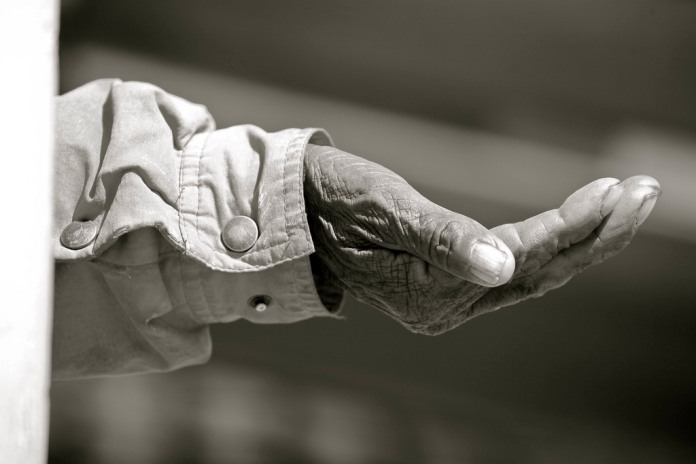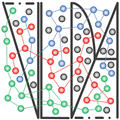
Being founded in the ultimate egalitarian principle of personal self-sovereignty, voluntary law is better able to correct systematic imbalances and prevent injustice to the poor than any system of law or government based in privileges of property, or elite political status. When the rich oppress the poor, voluntary law provides a sort of built-in remedy for the oppressed, as can be seen by analyzing the interests of the actors involved. All oppression by the rich must be rooted in their property claims. To resist oppression based in socially dysfunctional assertion of property rights, the poor have two useful tools. First, the poor can bring claims seeking payment from the property of the wealthy. The wealthier the defendant and the larger the potential award, the better the contingent-fee advocacy that can be hired. Second, the poor can adopt laws that do not recognize the property claims of the wealthy or that provide superior property rights in cases where the poor hold the weaker property law.
For example, application of TROTWET to real property tends to create incentives for homesteading on fallow land that is not being diligently defended, as discussed previously in connection with property laws. Large holders of unused land will have to recruit and reward a small army of defenders. In the absence of a social utility enlivened by a moral purpose, the mere holding of empty land will in most cases not be worth the effort. People will tend to claim parcels they actively use and patrol, or intend to use in the near future. Exceptions to these limits might include nature preserves that are defended by environmentalists, who use the land lightly (e.g., for quiet recreation and observation of nature) and who are motivated by righteous zeal for environmental preservation. The state would not be available to tax the poor and use the tax revenues to enforce the property claims of the wealthy. The wealthy would have to enforce their own property claims, and the cost of doing so would tend to create a wealth equalizing effect by requiring them to employ the poor on mutually acceptable terms. The poor would have no reason to hire themselves out for the defense of wealthy land claimants, unless the benefits of doing so outweighed the benefits of defending their own property claims. It is not hard to see how such a legal regime would tend to lead to joint defense pacts on relatively egalitarian terms, to the extent that defense is needed at all.
Widespread adoption of voluntary law would place the poor in the strongest possible individual negotiating position with respect to wealthy property owners seeking to hire them for defending the owner’s property claims or for exploiting those claims to earn income. Under voluntary law, there can be no imprisonment or other punishment inflicted on the poor except that which is permitted by the weakest law as between the law of a poor defendant and a wealthy claimant. Moreover, whatever the sentence, its execution will have to be paid for by the wealthy claimant.
Yet another tool in the arsenal of equality is the rule against forced recognition of corporate or other collective entities. This will make it harder for collectives to amass wealth to the disadvantage of individuals who do not recognize the legitimacy of the collective. For example, when mass movements of the poor choose to occupy corporate properties, the poor can select the laws that they will adopt for their own defense. Lobbying and influence peddling will have to be directed to its only proper outlet: the victims of the property claims that would be asserted. There are no legislators or entrenched judiciaries to buy off.
When the poor oppress the poor, monetary damages to motivate justice may be less effective particularly in cases where the poor defendant lacks any reasonable capacity for earning income. Statist systems fail particularly badly at this problem. A poor criminal can be imprisoned, but this costs taxpayer money and does nothing to restore the harm done. Meanwhile the imprisoned criminal receives often receives informal education in prison about how to survive as a criminal, and little or no instruction that enables prospering as a productive citizen.
Restitutionary justice will provide a better solution, by creating an economic incentive for reformation of the offender by a third party reformer. The reformer contracts with the convicted defendant and with the injured victim. The defendant agrees to work for the reformer in exchange for whatever terms can be agreed upon, with a portion of the defendant’s earnings paid to the victim. Once the debt has been repaid, the defendant has been rehabilitated. Both the defendant and the one who rehabilitates earn honor for themselves, and are positioned to take advantage of future opportunities.
In voluntary law societies, there will be greater incentives for private aid to the unfortunate. Those who give generously and successfully — meaning with gifts that do not make the recipient dependent, but that tend to lift them out out poverty into a self-sufficient state — will earn stellar reputations. The reputation earned will provide very real economic repayment for the time, effort, and expense of helping others. To name just a few benefits, the most effective charitable organizations will have the nature of an educational institute, which earns social power and prestige through its alumni. To reap these dividends of prestige and social power, charitable groups and individuals will compete for opportunities to serve needy clients of all types. Merely slothful people would make poor clients and would be less sought after. Yet, where there is sufficient demand for poor clients, many of those who by making themselves poor seek to live off the labor of others might be reformed, and taught the much more fulfilling rewards of a good reputation. In voluntary society, private charity will operate without coercion or fear of unwanted liability for conduct or misfortunes of the unfortunate. TROTWET will protect the well meaning and reasonable people on both sides of interactions between the poor and those who would serve them.
Stateless social security can be provided by mutual aid societies, which can be ad hoc informal organizations, or more formally organized. A self-perpetuating society nurtures both its young and its old; nurturing is a natural human trait that does not need to be enforced by a state. Unhindered by state meddling, mutual aid societies can operate more efficiently and strike a fairer balance between the needs of the young, old, and sick and the working middle that sustains those weaker members. Under voluntary law, this natural human impulse for nurturing and social structure is reinforced by the personal promises of those who join mutual aid compacts, making the fulfillment of their mutual promises a matter of personal honor and reputation. We can be sure that every single infant who ever survived to adulthood was the beneficiary of at least one, and often several, mutual aid societies on the path to survival. So too, we can be sure that a free people experiencing need will form mutual aid compacts to meet that need. When doing so under an “empire” of voluntary law, we can see mutual aid societies that (unlike tribes and nations) will not seek to make war on competing societies, because of the mutual promises made from within each competing group to the greater host of humanity without.
Societies based in personal sovereignty will provide vastly more economic equality than is possible when sovereignty is based on claims over land or other natural resources. Every person has only one inviolable dominion: their own person. All other property arises from their own conscience and promises. In such a society, durable poverty does not exist for any economically capable person, only temporary shortages of goods and services demanded.
* * *
